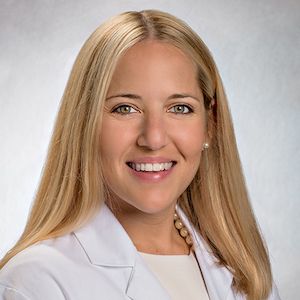Article
CP101 Prevented Recurrence of C Difficile Infection in PRISM-EXT Trial
Author(s):
Data show the proportion of individuals with sustained clinical cure through Week 8 was 80.3% with CP101 treatment.
Jessica Allegretti, MD

New findings from the PRISM-EXT trial found CP101 prevented recurrence of C.difficile infection (CDI) through Week 8 of the study, with no treatment-related serious adverse events.
These data were consistent with previous reported findings from the randomized, placebo-controlled PRISM3 trial, said the investigators.
“The PRISM-EXT results also suggest that a second dose of CP101 successfully rescued a significant proportion of participants who did not respond to an initial dose of CP101,” wrote study author Jessica Allegretti, MD, Brigham and Women's Hospital.
The findings were presented at the 2022 Digestive Disease Week Annual Meeting in San Diego, California.
Allegretti and colleagues noted there is a shortage of safety and efficacy data from rigorous trials on the effect of microbiome therapies for CDI. Particularly, few trials have looked at the effect of second dosing with an orally administered microbiome therapeutic due to recurrence after initial dosing.
As such, the PRISM-EXT trial aimed to evaluate safety and efficacy of the investigational orally administered microbiome CP101 in adults with recurrent CDI and those that experienced recurrence in the PRISM3 trial.
The PRISM-EXT enrolled individuals with ≥1 CDI recurrence at over 50 sites in the United States and Canada, with a qualifying CDI episode noted to be diagnosed prior to trial entry. After standard-of-care antibiotics, participants received a single oral administration of CP101 without bowel preparation.
Participants were made up of those who rolled over from the phase 2 PRISM3 following CDI recurrence on-study or direct entry participants with recurrent CDI who were not previously enrolled in PRISM3.
They identified the primary efficacy endpoint was sustained clinical cure, which was defined as an absence of CDI recurrence, through Week 8 following dosing. Then, secondary endpoints of efficacy and safety were evaluated through Week 24.
The study analyzed a total of 132 participants, split into two cohorts:
- PRISM3 rollover (n = 50)
- Direct entry participants (n = 82)
They noted the rollover cohort included CP101 rollover participants (n = 20) and placebo rollover participants (n = 30). The mean age reported was 69 years.
Investigators found 52% of participants entered the trial after a first CDI recurrence in the direct entry group. Data show the overall proportion of individuals with sustained clinical cure through Week 8 was 80.3%.
Additionally, they observed efficacy was maintained at a sustained clinical cure rate of 78.8% through Week 24. From the PRISM3 CP101 rollover participants, data show 70% (14 of 20) had a sustained clinical cure through week 8 after a second CP101 dose in PRISM-EXT. Investigators reported no treatment-related serious adverse events.
The study, “CP101, An Investigational Orally Administered Microbiome Therapeutic Was Effective For Prevention of Recurrent C.Difficile Infection: Results From Open-Label Prism-EXT Trial,” was presented at DDW 2022.




